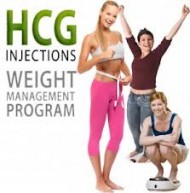What is Adult Growth Hormone Deficiency?
Growth Hormone Deficiency is a natural consequence of aging and is one of the major causes of looking and feeling older. Mainstream medicine now recognizes that Growth Hormone Deficiency contributes to muscle, bone, energy, and psychological concerns in many adults. Adult Growth Hormone Deficiency frequently coincides with other glandular disorders, and large numbers of patients around the world are being successfully and safely treated.
Symptoms of Growth Hormone Deficiency
increased body fat; decreased muscle mass; decreased bone density; low self-esteem; wrinkles; low energy levels; decreased strength; poor skin tone: poor sexual function; poor general organ function; low libido; poor self confidence; high BMI; low HDL (good) cholesterol; poor immune system function; poor cardiovascular health; muscle soreness; atherosclerosis; depression; anxiety; reduced hospitalization rates; poor exercise tolerance; poor cognition/memory
How is Growth Hormone Deficiency Treated?
Canyon Health we provide 2 Growth Hormone treatment options:
(1) Human Growth Hormone [HGH] injection (2) Sermorelin injection
**A note to clients suffering from either Andropause or Menopause: HGH or Sermorelin therapy almost always improves the symptoms of both of these conditions.
Benefits of Using HGH
|
Improves |
Improves |
Reduces |
| Energy | Stamina | Body Fat |
| Sense of Well-Being | Self confidence | Wrinkles |
| Cognitive Function | Strength | Cellulite |
| Organ Function | Skin Tone | Muscle Soreness |
| Cardiovascular Health | Digestion | PMS Symptoms |
| Immune Function | Sexual Function | Body Pain |
| Bone Density | Wound Healing | Hospitalization rates |
| Lean body Mass | Flexibility | Atherosclerosis |
| Hair | Exercise Tolerance | Joint pains |
| Good (HDL) cholesterol | Attitude | Depression and Anxiety |
*physicians cannot promise results from prescription drug treatment
Human Growth Hormone –What is Human Growth Hormone (HGH)?
HGH (Human Growth Hormone) is a hormone produced by the pituitary gland. HGH plays critical roles in growth and development during childhood and teen years, and continues to be of great importance throughout our lives. Its continued presence is necessary to maintain many health functions, including tissue growth, cell reproduction and cell regeneration, which is why HGH has become a mainstay of anti-aging treatment. Falling HGH levels associated with aging can result in numerous physical and psychological concerns. Like Sermorelin, HGH treatment is associated with improvements in many of these problems (see list below).
HGH Scientific Proof and Safety
Use of HGH as an anti-aging therapy began in 1990 when Daniel Rudman published a study in the New England Journal of Medicine (Rudman; 323:1-6 1990) that documented the effectiveness of HGH. The study divided 21 male test subjects between the ages of 60 and 80 who had low IGF-1 levels (laboratory indicator of low Growth Hormone level) into two groups: 12 received HGH and 9 received placebo (fake drug).
The results of the 6-month study revealed that study subjects who received real HGH injections experienced
- increases in lean muscle mass
- decreases in adipose fat tissue
- increases in vertebral bone height
- In addition, all were also found to have measurable increases in their HGH levels.
The control group had none of these results. The improvements seen with six months of HGH Therapy on body mass and adipose-tissue mass were equivalent to prevention of 10 to 20 years of aging.
Since Rudman’s landmark study, HGH was approved for treatment of adult Growth Hormone deficiency in 1996, and studies by leading physicians and healthcare professionals worldwide confirm its efficacy. The current consensus among these specialists is that HGH therapy provided in a physician supervised hormone replacement program is effective and safe, with the notable exception that HGH cannot be prescribed to persons suffering from cancer. Potential side effects associated with excessive HGH dosing include gigantism, stimulation of cancer cells, carpal tunnel syndrome, lethargy, organ enlargement, high blood pressure, headaches, joint inflammation, glucose intolerance (pre-diabetes), sleep apnea, tongue thickening, excess perspiration, and acromegaly (skull enlargement).



